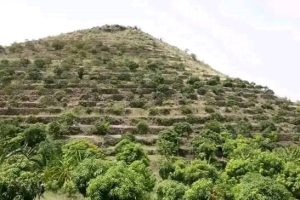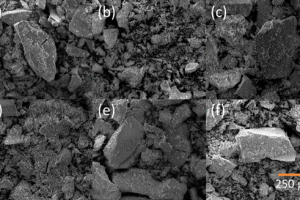
The reformist government of Ethiopia led by Prime Minister Abiy Ahmed (PhD) has registered unthinkable attainments since it took office in almost all the public sectors. As a result, agricultural sector has also chronicled very impressive achievements over the past 7 years that have taken Ethiopia to a new chapter.
Minister of Agriculture, Girma Amente (PhD), recently stated: “The achievements recorded in the agricultural sector over the past 7 years have brought Ethiopia to a new phase. Following the national transformation, activities have been carried out to bring about structural transformation in the agricultural sector.”
Particularly, the introduction of the cluster farming method of cultivation and the expansion of mechanized farming, as well as the shift from rain-fed agriculture to year-round cultivation have enhanced agricultural achievements. “This has brought Ethiopia to a new phase by increasing production and productivity,” Dr. Girma noted.
On the other hand, he also mentioned that efforts are being made to implement climate-resilient agricultural development through the Green Legacy Program to make the success being recorded in the agricultural sector sustainable.
By the same token, State Minister of Agriculture, Meles Mekonnen (PhD), mentioned that 12.5 million hectares of land were under cultivation during the harvest season before the reform, but now it has been increased to 20.5 million hectares. “This has increased the national harvest from 293 million quintals to 608 million quintals.”
The initiative launched to increase wheat production and productivity in the years since the reform, has yielded significant results, he sated adding that the annual wheat production in the harvest season alone has increased from 48.5 million quintals to 152 million quintals.
In the same way, Ambassador Shiferaw Teklemariam (Dr.), Commissioner for Disaster Risk Management of Ethiopia, said that the successes attained in the agricultural sector has provided the nation the capacity to withstand natural and man-made disasters with its own resources.
“The success that is being achieved in the agricultural sector nationwide is supporting the work that has been started to cope with the threat of disasters on its own,” he also stated reiterating that a policy has been formulated and implemented in all regions to ensure self-reliance in humanitarian assistance.
The reform has also brought about interesting results in the animal resource development sub sector. Due to the lack of attention given to the livestock and fisheries development sector in the past, we have not been able to utilize the number of animals our country has.

However, with the attention given to the livestock sector in the past 7 years of the reform, especially since the official launch of the National Yelemat Tirufat Program, tangible results have been achieved in the sector.
The National Yelemat Tirufat Program is one of the national programs (initiatives) that the Ministry of Agriculture has designed and achieved impressive results.
The program was officially launched on November 2, 2023, in Arba Minch town by Prime Minister, Abiy Ahmed (PhD), and is based on the goals of ensuring food and nutrition security in the community, replacing imported animal products with domestic products, encouraging exports, increasing foreign exchange earnings, and creating job opportunities over a four-year period (2023-2025/26 Ethiopian fiscal year).
The main purpose of this program is to increase milk, poultry, honey, fish and red meat production. For example, the specific objectives are to increase cow milk production from 5.8 to 10.3 billion liters, chicken egg production from 3.2 to 9.1 billion eggs, chicken meat production from 90,000 to 240,000 tons, and honey production from 147,000 to 296,000 tons over the four years.
Regarding the performance of the program, Minister Girma Amente (PhD) said: “We are working on revising the plan since we have achieved the 4-year plan in terms of production in 2 years,” when he officially launched the construction of the National Multi-disciplinary Dairy Development Training Center in Holota city with the support of the World Bank Project Budget to develop qualified human resources and make services accessible to farmers/pastoralists.
As well, the reformist government has also given special focus to the natural resource conservation. “Great attention is being paid to the protection of natural resources” Deputy Prime Minister, Temesgen Tiruneh, said in his remarks during his recent Amhara State visit.
Deputy Prime Minister Temesgen Tiruneh said that great attention is being paid to the conservation of natural resources in the Wag Himra Society Administrative Zone of the Amhara State in Ziquala, Dehana and other districts. “The Wag Himra Society Administrative Zone is in need of natural resource conservation activities due to the short rainfall.”
He noted that the development of the Tekeze Basin through irrigation requires the participation leadership at all levels and of the local community. “These promising initiatives should be strengthened, expanded and continuously implemented. The initiatives of the zonal administration are a lesson for other rain-deficient areas of Ethiopia.”
Likewise, Zala Mountain restoration is also an indication of the government’s due attention to the natural resource conservation. The united strong arms have brought Mount Zala back to development.
Mount Zala, located in the Dita District of the Gamo zone of the Southern Ethiopian State, was a very difficult and unsuitable place for farmers in the area. Not only did the soil erode and wash away with each rain, but the mud that rose from the mountain prevented farmers from cultivating and harvesting their crops.
To permanently solve this problem that has been going on for centuries, farmers in the area have been able to transform that difficult area into a tabletop, making it suitable for their farming activities, through a coordinated watershed development project.
Farmer Sera Guto and Addisu Amache, residents of Zala Kebele, Dita Woreda, Gamo Zone, said that the integrated watershed development project they carried out on Zala Mountain has created a great opportunity for them to increase their productivity. They also noted that it has created a great motivation for them to carry out various soil and water conservation projects on the mountains in their local district.
Equally, Gamo Zone Agriculture Department Head, Magesso Mashele, said that during the current fiscal year, 97,000 hectares of land were planned to be developed in 334 sub-basins in the zone through various soil and water conservation activities, and 101,000 hectares of land were developed.
“After the soil physical work has been completed in the zone, the work on soil and water conservation through biological methods will continue to be strengthened,” the head of the department elucidated the plan adding: “Farmers are developing a culture that benefits them economically by planting various types of animal feed and other multi-purpose fruit trees.”
To sum up, the agricultural sector’s achievement over the past 7 years have moved Ethiopia to a new stage. The introduction of the cluster farming method of cultivation and the expansion of mechanized farming, as well as the shift from rain-fed agriculture to year-round cultivation have enhanced agricultural achievements. And the Green Legacy Program has sustained the sector’s success.
This has increased the national harvest from 293 million quintals to 608 million quintals. And the annual wheat production in the harvest season alone has increased from 48.5 million quintals to 152 million quintals. Consequently, Ethiopia has developed the capacity to withstand natural and man-made disasters with its own resources.
The Yelemat Tirufat Program has enhanced food security with nutritional value two years ahead of the target year while the natural resource conservation has restored the eroded agricultural farm yards enabling farmers to diversify their farming experiences through inculcating policies without government’s enforcement.
BY DIRRIBA TESHOME
THE ETHIOPIAN HERALD WEDNESDAY 2 APRIL 2025





